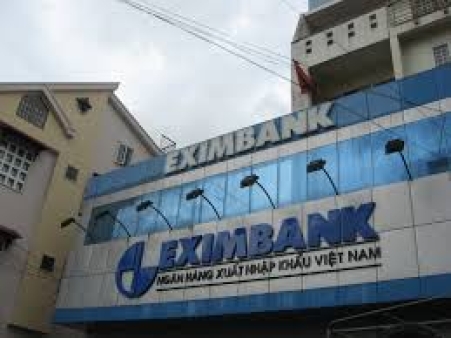
Eximbank net earnings to grow 20% in 2013 despite poor FY12 results
It will be driven by 15% loan growth.
According to Maybank Kim Eng, despite poor earnings results last year, the outlook for EIB’s earnings growth over the next 3-5 years is favorable, partly because of the long-term benefits that should emerge from the proposed merger with Sacombank (STB).
Here's more from Maybank Kim Eng:
Net earnings down 29% in 2012. FY12’s net earnings decreased 29% YoY after having grown 64% CAGR over 2006-2011. Net interest income dropped 8% due to flat loan growth and NIM contraction of 61bps YoY to 3.1%.
Non-interest income plunged 48% YoY, largely due to losses from the closure of EIB’s short gold position, in-line with the SBV’s directive(this loss accounted for c.10% of PBT).
The 2012 results also reflect the absence of some windfall sources of income in recent years – notably the profits large banks made lending to small banks via the interbank market during the turmoil in the banking system at the end of 2011.
Synergies with STB to support 2013 growth. We expect 20% net earnings growth in 2013, driven by 15% YoY loan growth and 60bps NIM expansion to 3.7%. This will in part come from new synergies between EIB and STB through co-lending, and mutual capital support through interbank and FX trading.
Impact of the merger with STB. The combined bank would overtake ACB as the biggest private sector bank in terms of assets, capital and branch network. Moreover, the new entity’s USD2.0b market cap at today’s market prices would put it in the same league as the large, listed state-owned banks, enticing a new pool of investors because of the larger market cap.
We’re constructive on the new bank’s overall prospects, as it would benefit from the strengths of its constituents: EIB has a sparse branch network but is strong in trade finance and interbank activities, while STB possesses a considerable retail client base and large branch network.
Impact of a pure acquisition. The announced merger plan did not provide many concrete details (including the exact timing – which could take place 3-5 years later) so we’ve examined the impact of two possible scenarios below: an outright acquisition versus a pooling-of-interest style stock swap. Either scenario would result in moderate EPS dilution, a slight improvement in the P/B ratio and a slight reduction of EIB’s ROE






















 Advertise
Advertise








